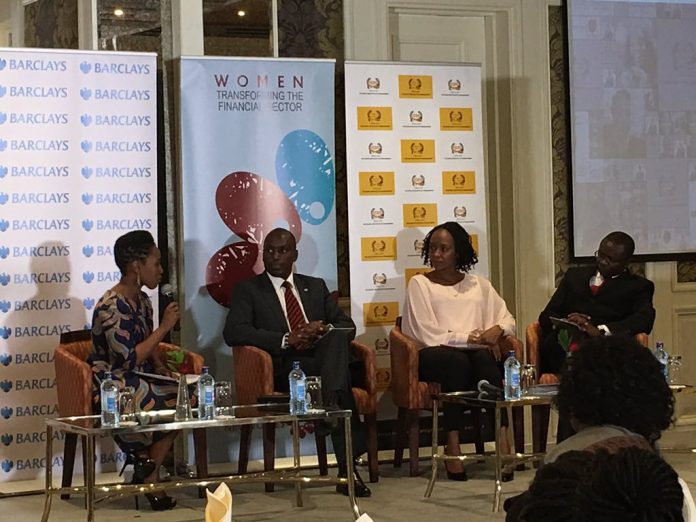Conversations with Kenyan Women Entrepreneurs on Successes, Challenges and She Trades Kenya

Being an entrepreneur is difficult, being a Kenyan entrepreneur is more difficult, being a Kenyan woman entrepreneur is most difficult. Women-owned businesses account for over 48% of SMEs, contributing about 20% of the Kenyan gross domestic product (GDP). Even with such encouraging statistics, women still face an array of challenges. I sat down with some inspiring women entrepreneurs, Lucy King’ori from Shea by Asal, Grace Wahome from Skaga Kennels, and Mary Munge of Maycols Cosmetics, at the lauch of She Trades Kenya, to get a sense of what their successes and challenges in business have been.
1.How did you get into this business?
Lucy King’ori: My son was suffering from eczema and I was advised by a South Sudanese friend to try treat it with raw shea butter. It worked and I sought the product out in South Sudan with the idea to make natural beauty products while at the same time helping the women I’d come across there earn a decent living.
Grace Wahome: I have always loved dogs and I had dogs but as pets. Initially, I couldn’t get a puppy because they didn’t believe I could take care of one. I took a loan of ksh 30,000 and got the puppy. I proved myself and my interest grew as I researched breeding and training of dogs. I did it part-time but left and took up the business full-time in 2005 when I started training security dogs for G4S.
Mary Munge: I’ve been an entrepreneur at heart since high school when I used to sell secondhand clothes to my classmates. I got into beauty and cosmetics because I realized there were a lot of fake products in the market and I wanted to provide quality.
2. What challenges have you faced running your business?
Lucy King’ori: It’s been tough, especially in the first year. Taking off was not easy as I had to deal with getting everything certified as well as getting people to believe in the business. I’ve been at it for two and a half years now and the business is only now profitable.
Grace Wahome: Training security dogs in Kenya was a new thing when I got into it and there wasn’t enough information on the ground. I had to research a lot in the beginning including travelling abroad and actually had to train and vaccinate the dogs myself before I expanded the business. Everything I have been through had been a learning process for me.
Mary Munge: Cosmetics is capital intensive so that has been quite challenging. There are also so many fake products in the market and it takes a lot of effort to get the best for your clients. Cosmetics is a sensitive industry as clients can immediately react to what you offer them.
3. How did you get involved with She Trades?
Lucy King’ori: A fellow woman entrepreneur told me about the initiative and I immediately signed up. I already have interested clients in South Africa.
Grace Wahome: I got involved with She Trades through 10,000 women. I am excited about expanding my international prospects. I wish She Trades was in existence when I was doing my research as I probably would have saved a lot of money and travel time.
Mary Munge: I found out about She Trades through 10,000 women. It will definitely save me travel time as I will be able to connect with suppliers directly through the platform.
4. What advice do you have for other women entrepreneurs?
Lucy King’ori: Don’t be scared of chasing your dream. Have faith, it’s not easy but please don’t give up. Always do things right even though it takes longer but it’s better to grow organically and at your pace. the next level.
Grace Wahome: Research and do it. If you don’t do it, you’ll regret not doing it and you won’t be able to get to the next level. I think one major issue is accounting. A lot of women entrepreneurs don’t have the accounting skills. Another issue is also HR issues.
Mary Munge: Start even if you have to start small. Also, make sure you strive to constantly provide quality and you will have loyal clients.
These are just a few of the amazing women entrepreneurs I had the pleasure of interacting with at the She Trades launch. She Trades is an initiative by the International Trade Centre (ITC) that now has a Kenyan chapter in partnership with Barclays Kenya.
The partnership will run between 2016 and 2020 and will see 10,000 Kenyan women entrepreneurs receive training including 50 workshops delivered by Business Support Organizations and Individual Trainers, 54 webinars on Market analysis Tools, 27 e-learning courses (Export Market Analysis, Taking the Entrepreneurship Route, Considering Export Markets etc.), 9 Business generation activities connect, 275 WBEs to buyers and 5 trade fairs, access to capital as well as access to international markets through the She Trades platform and app.
For more inspiration, watch more Kenyan women entrepreneurs commit to the #SheTradesKE movemement below.
http://www.mwendengao.com/2016/07/25/conversations-with-kenyan-women-entrepreneurs-on-successes-challenges-and-she-trades-kenya/BusinessInterviewsTechBarclays,ITC,She Trades Kenya,women entrepreneurs



Leave a Reply